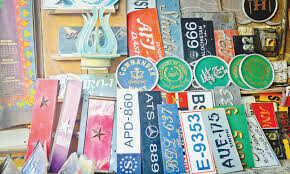KARACHI: Experts and officials of the provincial human organs transplantation authority (HOTA) on Wednesday said they feared Pakistan could again turn into an organ selling bazaar if the government continued to overlook the increasing activities of international mafias hunting for poor donors here and taking them abroad for transplantations.
“Pakistan was the world’s largest organ selling bazaar a few years back before a law curtailed it. But some recent events show the mafias have resumed their activities, especially in Punjab where they entice the poor into this illegal business,” said Dr Adibul Hasan Rizvi, director of the Sindh Institute of Urology and Transplantation, while briefing the media in the SIUT auditorium.
“Pakistan is in the eye of a racket, which has to be nipped in the bud.”
He said the Transplantation Society of Pakistan (TSP) had received an email a day earlier from the Declaration of Istanbul — an organisation on organ trafficking and transplant tourism — that “shared its knowledge with us about five illegal kidney transplantation in Islamabad last week”.
The organ beneficiaries, he said, belonged to Qatar, Kuwait and Bahrain.
Officials of the TSP and HOTA-Sindh spoke about the recent arrest of two people at Karachi airport, one of whom was from Karachi and a member of a suspected international chain involved in illegal transplantations, while the other hailed from Punjab, who was coaxed into selling his kidney to someone in India.
They, the media was informed, had to land in New Delhi en route to Dubai and Mauritius.
“It must be an influential international chain dealing in illegal organ donations by hunting for their fodder in Pakistan, Punjab in particular,” said Dr Naqi Zafar, secretary general of the TSP.
He urged the provincial health secretary to file a complaint against the two persons allegedly involved in the sale and purchase of human organs.
He said press reports should be taken as a prime facie offence under Section 11 (a), (b), (c) and (d) of the Sindh Transplantation of Human Organ and Tissues Act 2013.
The experts discussed the contents of the FIR registered by the Federal Investigation Agency (FIA) at the anti-human trafficking circle Karachi.
According to the FIR, Rizwan Ahmed, one of the two persons detained at the airport, was involved in organ trade.
“Based on the statement recorded by the FIA, it appears that another man, Sarfraz Bhatti, jobless and burdened with huge loans, was ensnared by Rizwan who promised money if he agreed to give his kidney for transplant to a patient in a New Delhi hospital,” said Dr Rizvi.
He said Sarfraz was lured into an arrangement because exploiting extreme economic compulsions he was going through could not be regarded voluntary.
Dr Majida Rizvi, a member of HOTA, said a committee comprising members of the TSP, HOTA and SIUT had decided to file a complaint against Rizwan under Section 14 (i) of the Sindh Transplantation of Human Organ Tissues Act of 2013.
The committee, she said, also deemed it significant that the provincial health secretary liaised with the FIA to file a formal complaint against the alleged mafia member under the Prevention and Control of Human Trafficking Ordinance.
Dr Zafar said targeting poor people for organ selling abroad was something new in the country.
He said people from Punjab were transported to various countries, including India and China, where they were paid for their organs.
“This must be an international ring that can so conveniently arrange for the poor people of Pakistan to go to India and elsewhere. The government should take effective steps to curb it.”
Dr Manzoor Hussain, who heads the TSP in Sindh, said he had found no case in which the mafia had trapped any donor from Sindh.
Published in Dawn December 11th , 2014















































